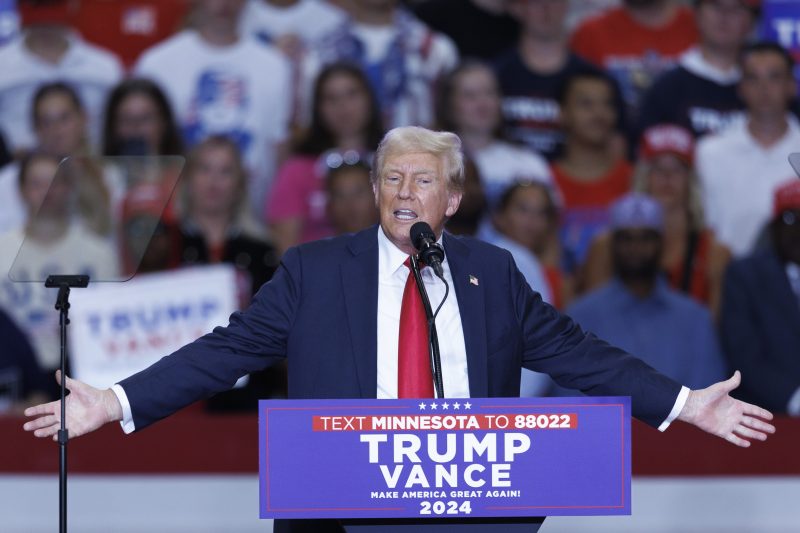
Trump Claims Harris’ Appearance Could Hinder Diplomacy with World Leaders
In a recent statement, former President Donald Trump made a controversial suggestion about current Vice President Kamala Harris, implying that she would struggle to communicate effectively with world leaders based on her appearance.
Trump’s remarks have stirred up a debate about sexism and double standards in politics, with many criticizing his comments as unprofessional and inappropriate. While it’s no secret that appearance can play a role in political interactions, focusing solely on a leader’s looks overlooks the essential qualities needed to engage in effective diplomacy.
The ability to connect with world leaders goes beyond physical appearance. Effective communication, mutual respect, cultural understanding, and diplomatic skills are vital traits that leaders must possess to navigate complex international relationships successfully. Harris, with her background in law, public service, and experience as a senator and now Vice President, has demonstrated her capacity to engage in meaningful discussions and negotiations on a global scale.
Critics of Trump’s statement argue that judging a leader’s capabilities based on appearance is an outdated and shallow way of evaluating their competence. Women, in particular, have historically faced scrutiny and judgment regarding their looks, overshadowing their skills, intellect, and leadership abilities. This kind of criticism can perpetuate harmful stereotypes and undermine a leader’s credibility based on factors that have no bearing on their competence.
It is essential to shift the focus from outward appearances to the substance of a leader’s actions and policies. Evaluating leaders based on their achievements, decision-making skills, and their ability to foster strong diplomatic relationships will provide a more accurate representation of their effectiveness on the global stage.
In conclusion, while appearance may play a role in initial impressions, it is ultimately a leader’s actions, communication skills, and ability to navigate complex international affairs that determine their success in engaging with world leaders. Criticisms based solely on appearance detract from the substantive discussion of a leader’s capabilities and perpetuate harmful stereotypes. It is crucial to evaluate leaders based on merit, experience, and diplomatic proficiency rather than shallow and outdated judgments.
